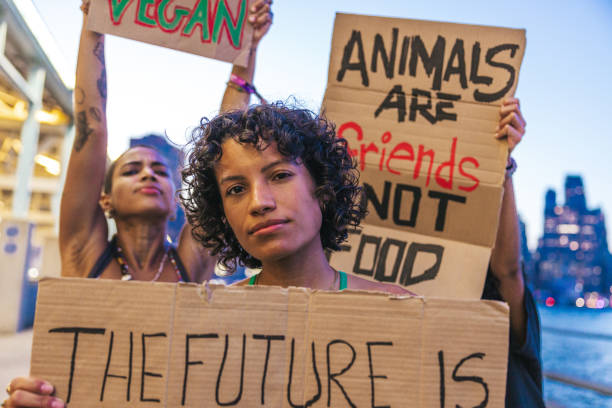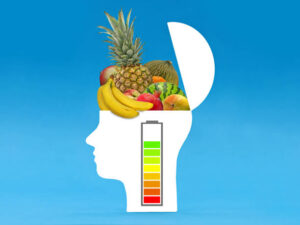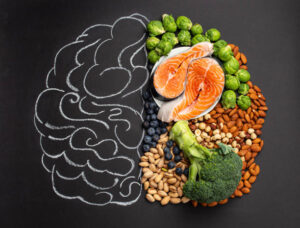In a world where we strive for compassion and equality, many overlook one critical aspect of justice: animal rights. For me, transitioning to veganism wasn’t just about health or the environment (though those are great bonuses); going vegan helps animal rights and prevents the exploitation of animals.
When I learned how my choices affected billions of sentient beings, I couldn’t turn a blind eye. This article explores how going vegan helps animal rights, emphasizing the power we hold as consumers to make a difference.
Understanding Animal Rights and the Problem with Exploitation
What Are Animal Rights?
At its core, animal rights is the idea that animals are not ours to use or exploit. They are sentient beings, capable of feeling pain, fear, and joy. Just as humans deserve freedom from oppression, animals deserve freedom from exploitation. Yet, billions of animals endure unimaginable suffering every year in factory farms, laboratories, and other industries.
For example, most chickens in factory farms never see sunlight, and their lives are cut tragically short after months of suffering. As I learned more about their plight, I realized my dietary choices were contributing to their pain.
The Role of Animal Agriculture in Animal Cruelty
Animal agriculture is the largest perpetrator of animal exploitation. From the cramped, filthy cages of factory farms to the stress and trauma of slaughterhouses, the meat, dairy, and egg industries are built on cruelty. Even “humane” labels like “free-range” or “cage-free” are often misleading, as animals still face harsh conditions and premature deaths.
For instance, in the egg industry, male chicks are considered useless and are typically ground up alive or suffocated shortly after birth. It’s horrifying to think that such suffering is normalized for the sake of convenience.
How Going Vegan Helps Animal Rights Directly
Aligning Actions with Compassion
When you go vegan, you actively withdraw support from industries built on cruelty. Every meal becomes an act of compassion, reinforcing the belief that animals deserve better. Personally, the moment I stopped eating animal products, I felt a profound sense of alignment between my values and my actions.
Instead of turning a blind eye to the suffering on my plate, I began to see animals as individuals with lives worth living. Cows, pigs, chickens, and fish are no different from the dogs and cats we love as pets.
Reducing Demand for Cruelty
Economics plays a powerful role in the fight for animal rights. The fewer animal products we buy, the less profit-driven companies are incentivized to exploit animals. Studies have shown that as demand for plant-based foods grows, animal agriculture declines.
One powerful statistic that inspired me: if everyone in the U.S. ate plant-based just one day a week, it would save the lives of over 1 billion animals each year. Imagine the impact of a fully vegan lifestyle!
10 Broader Impacts of Veganism on Animal Welfare
1. Protecting Wildlife Habitats
Factory farming isn’t just harmful to farm animals; it also devastates wildlife. Forests and grasslands are cleared to make space for animal feed crops like soy and corn, leading to habitat destruction and species extinction.
By choosing veganism, we indirectly protect wild animals by reducing the demand for land-intensive animal farming. It’s a win for both farm animals and wildlife.
2. Saving Marine Life
The fishing industry is one of the most destructive forces against marine life. From overfishing to harmful practices like trawling, billions of fish are killed each year, often in horrific ways. Worse, non-target species like dolphins, turtles, and sharks are caught as bycatch and discarded.
Leaving seafood off your plate not only spares fish but also helps preserve delicate marine ecosystems. It’s incredible how one simple decision can ripple outward to benefit many creatures.
3. Reducing Pollution from Animal Agriculture
Animal farming produces massive amounts of waste, including manure, which often contaminates water sources and creates harmful air pollution. This waste can destroy aquatic ecosystems and harm both animals and humans living nearby.
By opting for plant-based alternatives, we reduce the pollutants associated with animal farming, helping to create a cleaner, safer environment for all.
4. Halting the Spread of Zoonotic Diseases
Factory farming is a breeding ground for zoonotic diseases, which can spread from animals to humans. Diseases like avian flu and swine flu originate in crowded, unsanitary farming conditions.
Choosing veganism reduces the need for such environments, ultimately protecting humans and animals from devastating outbreaks.
5. Preventing Deforestation
Animal farming is one of the leading causes of deforestation worldwide, particularly in the Amazon rainforest, which is often cleared to grow feed crops like soy for livestock.
A plant-based lifestyle reduces the demand for such destructive practices, preserving critical habitats for countless species and slowing biodiversity loss.
6. Mitigating Climate Change
Animal agriculture is a major contributor to greenhouse gas emissions, producing methane, nitrous oxide, and carbon dioxide. These gases accelerate climate change, which in turn threatens countless animal species.
By adopting a vegan diet, you help combat climate change and provide a safer, more stable environment for wildlife.
7. Reducing Overuse of Antibiotics
The livestock industry relies heavily on antibiotics to keep animals healthy in crowded, unsanitary conditions. This overuse contributes to antibiotic resistance, which threatens the health of humans and animals alike.
By reducing the demand for animal farming, veganism helps curb the overuse of antibiotics and its associated risks.
8. Preserving Freshwater Ecosystems
Animal agriculture consumes vast amounts of water, from raising livestock to growing feed. Additionally, runoff from farms pollutes rivers and lakes, harming aquatic ecosystems.
Choosing a plant-based diet conserves water and protects freshwater habitats, supporting a healthier balance for aquatic species.
9. Protecting Insects and Pollinators
Industrial farming practices used to grow animal feed often rely on pesticides and monoculture crops, which harm bees, butterflies, and other pollinators. These insects are essential for healthy ecosystems and global food security.
Veganism reduces the demand for such harmful practices, helping to protect pollinators and the ecosystems they sustain.
10. Encouraging Ethical Research Alternatives
Many research facilities test products or drugs on animals, often citing dietary needs or agriculture as justification. As veganism grows, there’s increased support for cruelty-free alternatives in research, further reducing harm to animals.
Supporting vegan products and lifestyles pressures industries to shift away from exploitative practices, paving the way for more ethical innovation.
How Veganism Inspires Change in Society
Leading by Example
When I first went vegan, I didn’t think I could inspire anyone. But as I shared my reasons—whether through conversations or potluck dinners—people began to ask questions and make changes.
Every vegan has the power to inspire others. By showing how easy and fulfilling it is to live without harming animals, we plant seeds of change. Over time, those seeds grow into movements that challenge societal norms.
Supporting Animal Rights Organizations
Many animal rights organizations rely on veganism to strengthen their advocacy. By going vegan, you’re not only reducing harm to yourself but also empowering groups fighting for policy changes. From banning factory farming practices to promoting plant-based school meals, these organizations are making a tangible impact.
Supporting these groups, whether financially or by spreading their message, amplifies the collective effort to protect animals.
Educating Future Generations
One of the most powerful ways veganism inspires change is by shaping the perspectives of future generations. When children grow up learning about the ethical and environmental benefits of a plant-based lifestyle, they’re more likely to adopt compassionate habits as adults.
Vegan parents and educators play a critical role in normalizing empathy toward animals, ensuring that cruelty-free living becomes the standard rather than the exception.
Challenging Industry Norms
The rise of veganism is forcing industries to rethink their practices. Major food companies are now investing in plant-based alternatives, and traditional meat and dairy producers are exploring cruelty-free options to stay relevant.
By collectively choosing vegan products, we send a message to these industries: compassion sells, and cruelty is no longer acceptable. This ripple effect is slowly transforming how businesses operate.
Amplifying Voices Through Social Media
Social media has become a powerful tool for spreading awareness about how going vegan helps animal rights. Vegan influencers, activists, and everyday individuals share compelling stories, recipes, and facts that challenge old perceptions.
When you share your vegan journey online, you’re contributing to a larger movement that reaches millions of people, inspiring them to reconsider their choices and join the cause.
Addressing Common Misconceptions About Veganism and Animal Rights
“One Person Can’t Make a Difference”
This is one of the biggest myths I’ve heard, but the truth is, every choice matters. Consider this: over a year, a single vegan saves nearly 200 animals. That’s not just a number—it’s 200 lives spared from suffering.
When multiplied by millions of people choosing veganism worldwide, the impact becomes undeniable.
“Animals Don’t Suffer in Humane Farming”
The idea of “humane” farming is largely a marketing ploy. Animals raised in these systems still face painful mutilations, cramped conditions, and early deaths. I once visited a so-called “free-range” farm and was heartbroken to see chickens missing feathers, huddled together in filth. It was a stark reminder that the only truly humane option is not to exploit animals at all.
The Ripple Effect: Veganism and Future Generations
When we go vegan, we’re not just making a statement for today; we’re setting the stage for a more compassionate future. Children raised with respect for animals are more likely to grow into empathetic, conscientious adults.
By normalizing veganism, we’re challenging the idea that animals are commodities and creating a world where all beings are treated with dignity.
Conclusion: How Going Vegan Helps Animal Rights
Going vegan not only has health benefits, it is also is one of the most effective ways to help animal rights. It’s a choice that aligns our actions with our values, reduces the demand for cruelty, and inspires systemic change.
Reflecting on my journey, I see how powerful individual decisions can be. Together, as more people embrace veganism, we can create a kinder, more compassionate world for all living beings, despite the myths about veganism.
So, whether you start by swapping out a single meal or diving in completely, know that your choices matter. Let’s work together to ensure a brighter future for animals—and ourselves.







